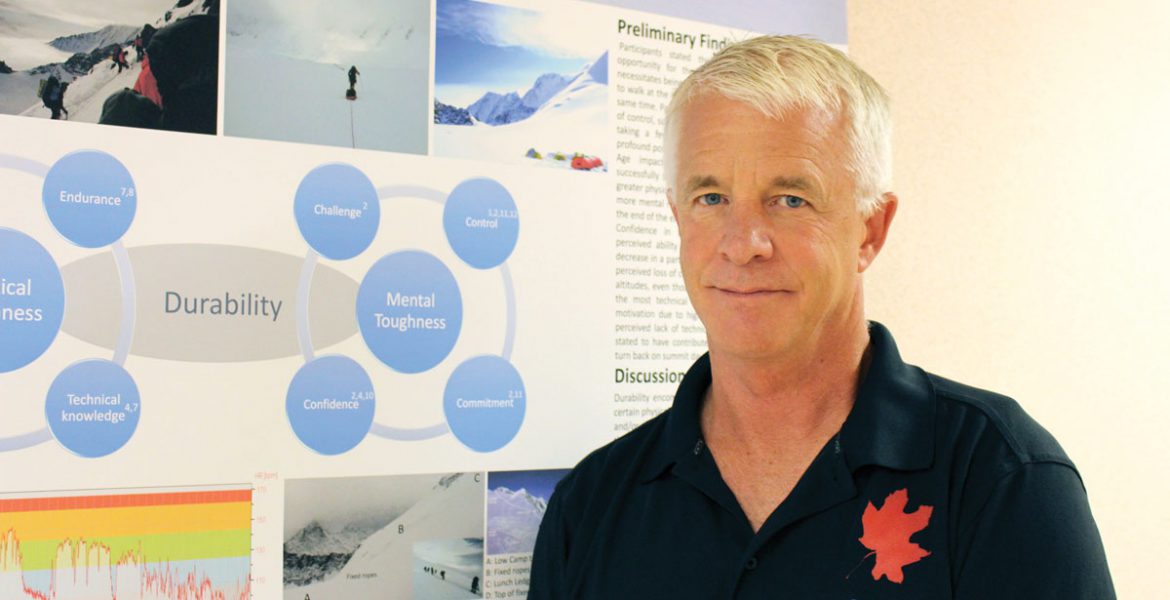From soccer to Cirque du Soleil, Dean Kriellaars’ research into physical movement has far-reaching implications.
Kriellaars [PhD/92, B.P.E./80], associate professor of physical therapy in the College of Rehabilitation Sciences, focuses his research in an area known as physical literacy. Often when we think of literacy, we think of the ABCs of reading and writing. Kriellaars’ research takes the same concept and applies it to physical activity.
“Physical literacy is the building blocks you put together, like the alphabet, to create movements we need to do in everyday life,” Kriellaars says. “We currently don’t deliver the basic alphabet of movement skills, and that alphabet is the foundation of physical literacy. If you don’t have that vocabulary, you’re blocked from participating actively in society, whether that’s sport, recreation or vocation.”
One of the exciting research projects Kriellaars is currently working on focuses on increasing physical literacy in young soccer players, ages seven and up. The program – called Movement Preparation – is being launched across Canada with the goal of enhancing performance in soccer while increasing players’ endurance. Canada is the first country to implement this kind of physical literacy-based movement preparation program.
Kriellaars’ other research work in physical literacy is with Cirque du Soleil and the National Circus School in Montreal.
“Physical literacy is the building blocks you put together, like the alphabet, to create movements we need to do in everyday life.”
“We ask, ‘What is it about circus performers that makes them good at what they do?’” he says. “My job with the circus is to maximize performers’ durability and performance while minimizing injury.”
Performers go through a wide range of tests to measure bone density, muscle mass and many other physical characteristics. “We can relate these findings to injury potential and performance potential,” the professor says.
Kriellaars’ physical literacy research with circus performers is also being used to make a positive impact on the lives of children in Manitoba. A new program is being implemented in schools across the province to help promote physical activity and literacy.
“I study the impact of circus art instruction and apply it to kids to help equip them with physical literacy for life,” he says. “If every person of every ability gets a challenge, confidence is built – confidence built on a fun and challenging pathway mixed with success and failures.”
Kriellaars continues to be passionate about getting people off the couch and into active living.
“That gateway to an active life is physical literacy,” he says. “In the end it’s about getting back to moving again and valuing it in society. That drives everything I do. I live it and breathe it as best I can.”
Just before the 2016 Rio Olympics, Kriellaars was featured on CBC News for his research into the question of whether better performance by Canadian Olympians correlated with the general population becoming more active and fit.
He found just the opposite. Over the past 45 years, as Canada has won more Olympic medals, the Canadian population has become increasingly obese. Being glued to various kinds of screens as sports viewers makes us inactive, he said. That’s why he had no plans to watch the Olympics himself.
“I love sport, I am a patriotic person, but I prefer to do sport,” he said.

